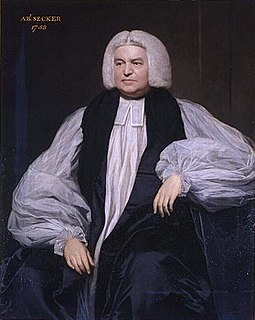A Quote by John Calvin
Augustine does not disagree with this when he teaches that it is a faculty of the reason and the will to choose good with the assistance of grace; evil, when grace is absent.
Related Quotes
Augustine said that we were all born into the world of "common grace" [i.e., available to all]. Before one is baptized, or even if one never is, such grace meets one in God's creation. There is grace in the pear tree that blooms and blushes. There is common grace in the sea (that massive cleanliness which we are proceeding to corrupt), in the fact that there was, before we laid hands on it, clean air. Our task is to appreciate that grace.
Grace is something you can never get but can only be given. There's no way to earn it or deserve it or bring it about anymore than you can deserve the taste of raspberries and cream or earn good looks. A good night's sleep is grace and so are good dreams. Most tears are grace. The smell of rain is grace. Somebody loving you is grace.
The proclamation of grace has its limits. Grace may not be proclaimed to anyone who does not recognize or distinguish or desire it... The world upon whom grace is thrust as a bargain will grow tired of it, and it will not only trample upon the Holy, but also will tear apart those who force it on them.
So saving grace, converting grace, for Augustine, is God's giving us a sovereign joy in God that triumphs over all other joys and therefore sways the will. The will is free to move toward whatever it delights in most fully, but it is not within the power of our will to determine what that sovereign joy will be.
It is grace at the beginning, and grace at the end. So that when you and I come to lie upon our death beds, the one thing that should comfort and help and strengthen us there is the thing that helped us in the beginning. Not what we have been, not what we have done, but the Grace of God in Jesus Christ our Lord. The Christian life starts with grace, it must continue with grace, it ends with grace. Grace wondrous grace. By the grace of God I am what I am. Yet not I, but the Grace of God which was with me.
Cheap grace is the grace we bestow on ourselves. Cheap grace is the preaching of forgiveness without requiring repentance, baptism without church discipline, Communion without confession.... Cheap grace is grace without discipleship, grace without the cross, grace without Jesus Christ, living and incarnate.



































